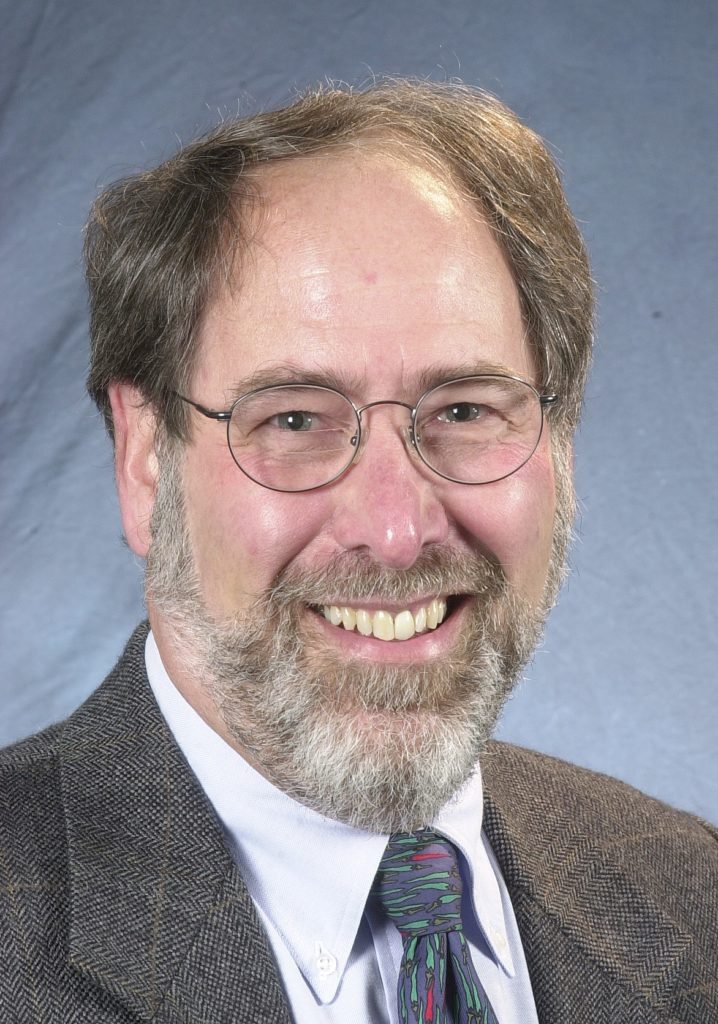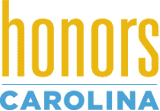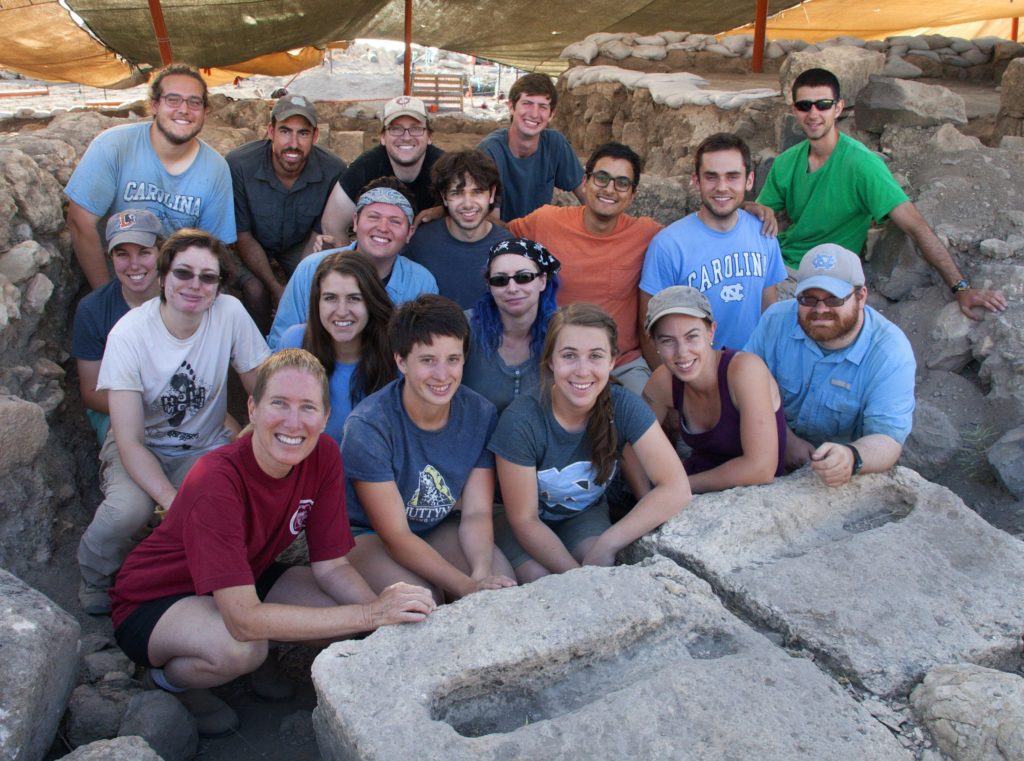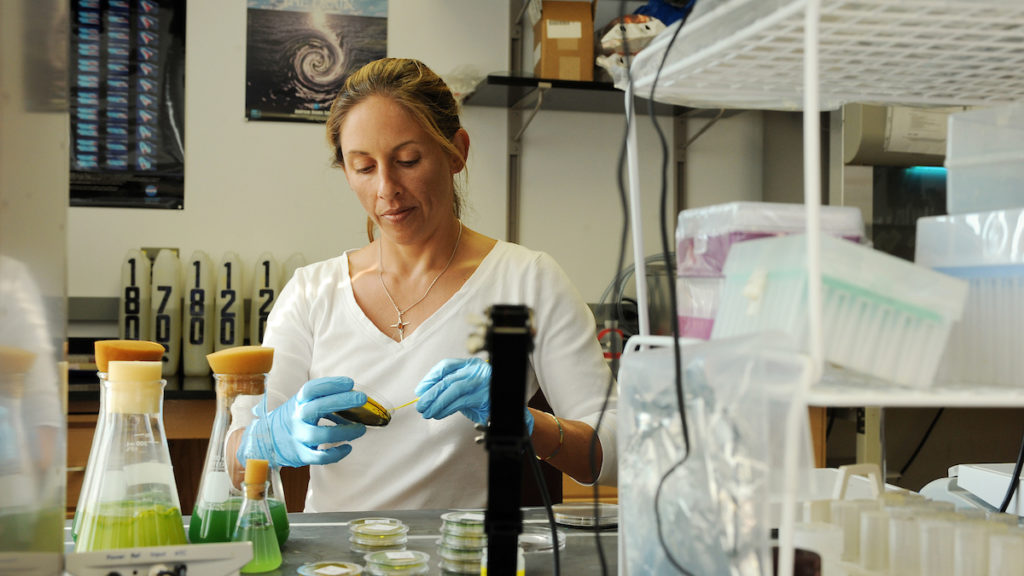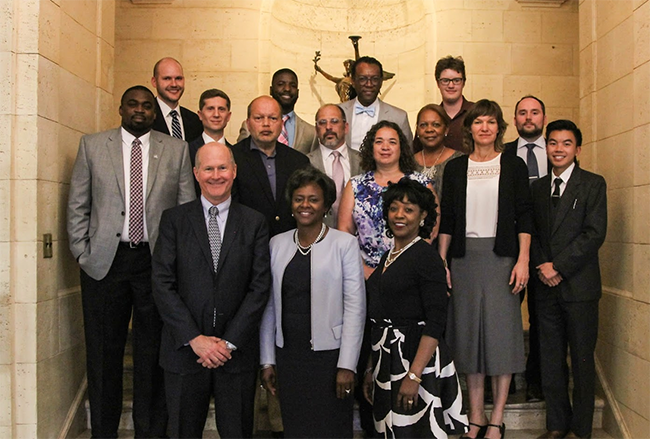
Nine people or groups received 2017 University Diversity Awards for significant contributions to the enhancement, support and furtherance of diversity and inclusion on the Carolina campus and in the community.
The ninth annual awards event, sponsored by the Office of Diversity and Multicultural Affairs, was held April 4 in Wilson Library.
“This year’s recipients combined caring, creativity and hard work to develop projects that helped people at Carolina, in our neighboring communities and across our state,” said Chancellor Carol L. Folt. “Their wide range of projects, focused on diversity and inclusion, shows how getting involved can make a difference in people’s lives. I am very proud of the example they set, demonstrating what it means to be a great public university.”
Interim Chief Diversity Officer and Special Assistant to the Chancellor G. Rumay Alexander said her overarching goal is “human flourishing” not only for students, but for faculty and staff as well.
“When we take the time to better understand people, we put them into a better position to flourish. This year’s winners personify how that can be done,” Alexander said.
Executive Vice Chancellor and Provost James W. Dean Jr. said the recipients of this year’s awards exemplify the superior efforts to ensure our school’s mission to continue to build a diverse and inclusive campus community and culture.
“At Carolina, diversity is not a talking point or a statistic,” Dean said. “It’s a seat at the table, a voice in the room and a hand in the decision.”
This year’s winners are:
Mark Katz, the Ruel W. Tyson Jr. Distinguished Professor of the Humanities in the Department of Music and director of the Institute for the Arts and Humanities in the College of Arts and Sciences won the faculty award. In his remarks, Katz described himself as a “privileged white guy with tenure, employment and funding” and suggested “others in positions of privilege should step up and listen to those who are suffering from injustice and help. You’ll realize how little you have to lose and how much we all have to gain.”
Dexter Robinson, an academic advisor who was part of the first cohort of Carolina College Advising Corps and co-founded Carolina United, won the staff awards. Robinson said he believes in meeting students where they are, and empowering them to make decisions when they understand all of their options and resources. Robinson said in his remarks, “I’m quite quiet and didn’t prepare any remarks because, realistically, I’m doing my job. I’m an alumnus and this is just part of being a Tar Heel.”
Kenneth Ward (’84), who taught public school for 15 years and now serves as the executive director of College Bound in Washington, DC, won the alumni award. His work with College Bound helps to equipped inner city youth with the skills, and the hope, that they need to be successful in life. In his remarks, Ward said his mother and grandmother instilled in him the value of education and he went on to become valedictorian of his senior class and graduate from Carolina. “I’m of the first generation to go to college and complete it, so I know the challenges and that’s why I do this work,” Ward said. “People still are made to feel that they don’t belong, so we work to change that. It’s what we do when no one’s looking.”
Ryan Spurrier, the minister of Wesley Campus Ministry, whose sermons on the topic of homelessness have helped to humanize the people who students see each time they walk down Franklin Street. One nominator said Spurrier’s sermons on homelessness challenge students to “reflect on their own privilege and consider what they can do to help neighbors in need.” In his remarks, Spurrier said “diversity begins in selfishness.” He added, “Students wrestle with questions of justice, so this is a reminder of the opportunity that we have every day to speak to the lives of students who are changing the world.”
Black Alumni Reunion, which was recognized from a modest group to a model reunion consistently benchmarked by universities across the nation for its methods of engagement, won the community organization award. The group also won praise for its ability to provide funds for merit-based scholarships to Carolina’s first-year African-American students. Regina Newell Stephens, the group’s former chair, said more than 1,000 alumni unite every year to celebrate culture and shared experiences. It’s more than a weekend party, she added. “Every year, we celebrate support and lift up current students with scholarships and networking. Each one reaches as many as we can.”
Stephen Krueger, a student in the School of Information and Library Science who serves as the graduate student representative on the Diversity Committee and leader of Checked Out, the school’s diversity group, won the graduate student award. Krueger, who is transgender, has worked to create the Diversity Advocate Certificate to promote a more welcoming space for LGBTQ+ students. He has also worked with faculty and administrators to develop a special topics course called “Information Services in a Diverse Society” that has been added to the curriculum. “Social justice work feels like shouting into a void,” Krueger said, but added, “Visibility matters and this recognition goes a long way towards making us feel less alone in our work and identities.”
Johnny Vang, a Carolina Covenant scholar and son of refugees, won the undergraduate award for his work to help low-income families, the historically disadvantaged and cultural minorities gain equal access to health care. His activities include serving as community chair for the Health Careers Club and being a member of the multicultural outreach and diversity executive committee for the Student Government Association. In his remarks, Vang said, “Today, we come together at a crossroads between war and peace, between disorder and integration, between fear and hope. The calling for unity on this campus, community, state and nation grows louder, but we cannot solve the challenges of our time unless we do it together. We come from different places and speak with different tongues, but our hearts beat as one.”
The UNC Center for Civil Rights, which focuses on education, housing and community development, economic justice, environmental justice, voting rights and civic engagement, won the department award. The center also trains lawyers who believe in and understand the efficacy and centrality of law in eliminating racial inequality. In his remarks, director Ted Shaw thanked the Carolina community for its unwavering support. “This is the 39th anniversary of the assassination of Dr. Martin Luther King. America has come view him in a kind of reverence that makes it appear that everyone supported him,” Shaw said. “Everybody didn’t. I think about that as we go through what we’re going through now. …We’re on the right side of history and the right side of right.”
Christopher Wallace, manager of the Communiversity Youth Program, won the special recognition award. With the help of various community support systems, Wallace achieved academic excellence and overcame the adversity of growing up in one of the state’s poorest and most crime-ridden communities in Fayetteville. Through his work with Communiversity and countless other organizations, Wallace has inspired countless youth to identify their gifts, bridge achievement gaps and become better versions of themselves. In his remarks, Wallace said, “Life is about how you impact others and make them feel, so it’s important to encourage others to succeed and have the audacity to be great.”
In her closing remarks, Felicia A. Washington, vice chancellor for workforce strategy, equity and engagement, said diversity should be “part of the fabric – a thread in all we do.”
She added, “Diversity is not just being invited to the party, but being equipped, enabled and encouraged to dance once you get there.”

